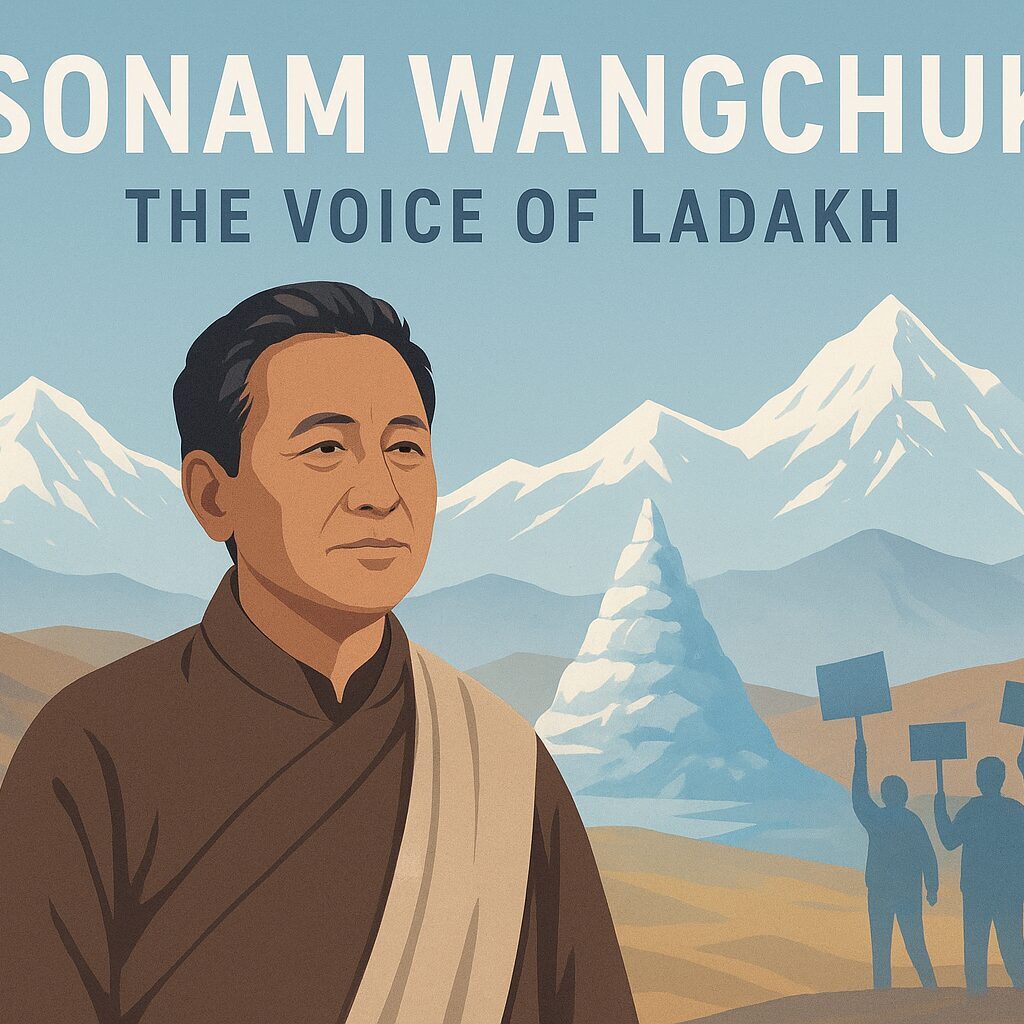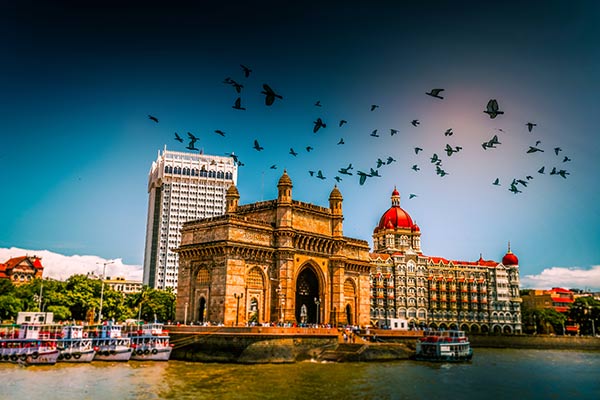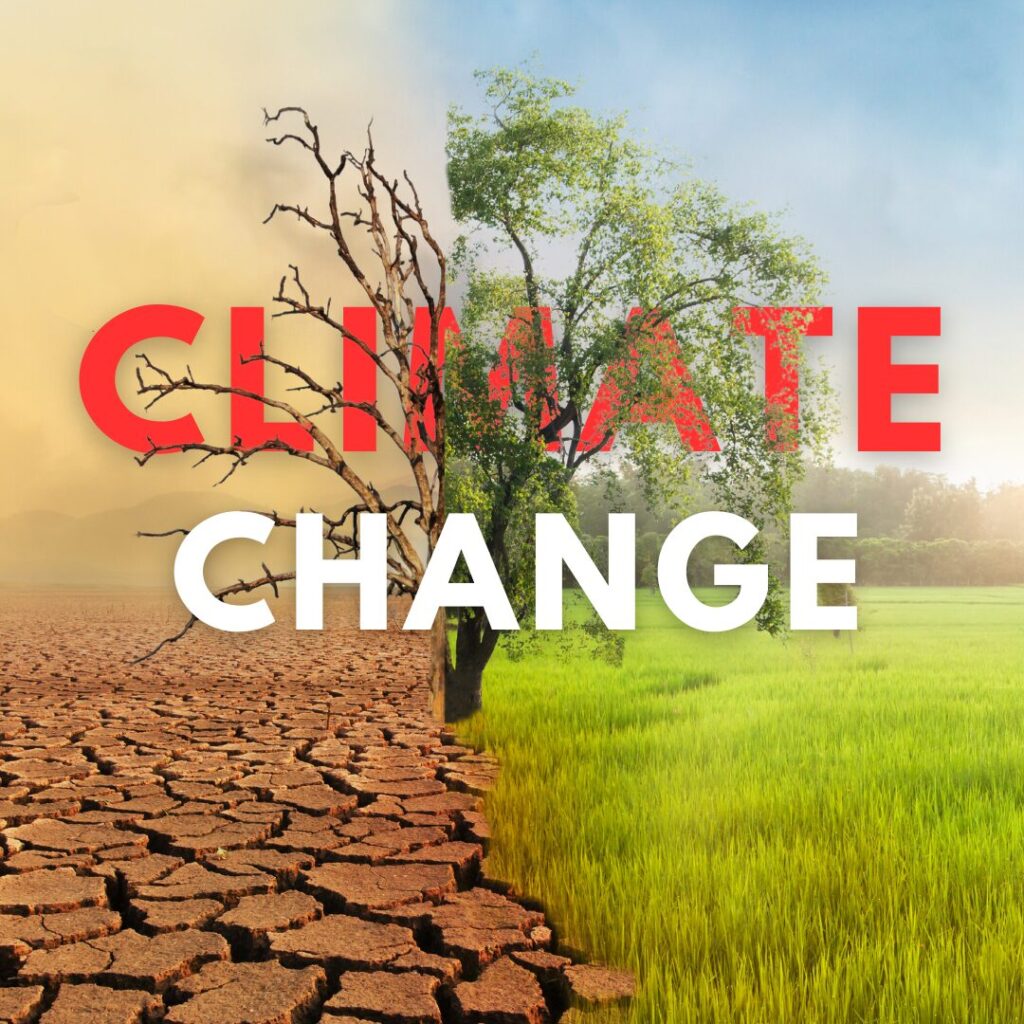In the cold desert of Ladakh, where glaciers are melting faster than ever and traditional ways of life stand at risk, one man has become the voice of both climate justice and constitutional rights: Sonam Wangchuk.
Globally known for his Ice Stupa innovation and alternative education models, Wangchuk today finds himself at the heart of Ladakh’s political storm. His story is not just about science and sustainability, but also about the struggle for dignity, democracy, and protection of a fragile ecosystem.
Who is Sonam Wangchuk?
Born in Uleytokpo, Ladakh, in 1966, Sonam Wangchuk’s early years were shaped by hardship. Struggling with language barriers in school and limited resources in remote villages, he persevered to become an engineer at NIT Srinagar and later studied earthen architecture in France.
He is widely regarded as the real-life inspiration for Phunsukh Wangdu in the Bollywood film 3 Idiots.
Education Reformer: SECMOL
In 1988, Wangchuk co-founded the Students’ Educational and Cultural Movement of Ladakh (SECMOL).
-
The SECMOL campus is solar-powered, fossil-fuel-free, and built using local earth architecture.
-
It provides students with hands-on, culturally rooted learning.
-
This initiative has transformed education in Ladakh, making it relevant to local challenges.
Innovations in Sustainability: Ice Stupa & Eco-Architecture
Wangchuk’s most celebrated invention, the Ice Stupa, creates cone-shaped glaciers that store winter water and release it slowly in spring and summer. This innovation addresses water shortages caused by climate change and glacial retreat.
Through the Himalayan Institute of Alternatives, Ladakh (HIAL), he has expanded his work in sustainable architecture, promoting energy-efficient, climate-responsive designs in high-altitude regions.
From Innovator to Activist: Why Ladakh Is Protesting
The turning point came after 2019, when Ladakh was carved out as a Union Territory following the abrogation of Article 370. While many welcomed direct governance from Delhi, locals soon grew concerned about:
-
Lack of constitutional safeguards for Ladakh’s land, jobs, and culture.
-
Risks of ecological exploitation in one of the world’s most fragile environments.
-
Absence of Sixth Schedule protections (which safeguard tribal and indigenous communities).
Wangchuk emerged as a peaceful leader, demanding:
-
Full statehood for Ladakh
-
Inclusion in the Sixth Schedule of the Constitution
Hunger Strikes, Protests & Rising Tensions
-
March 2024: Wangchuk observed a 21-day climate fast to press for Ladakh’s constitutional rights.
-
April 2024: He announced marches to the border, highlighting Ladakh’s vulnerability both ecologically and geopolitically.
-
2025: Protests intensified. Hunger strikers’ health deteriorated, curfews were imposed, and tragic clashes led to deaths.
The movement that began with non-violent Gandhian methods has now reached a critical phase.
Government Pushback & Allegations
In September 2025, the situation escalated:
-
The Ministry of Home Affairs cancelled the FCRA license of Wangchuk’s NGO, restricting foreign funding.
-
The CBI launched a probe into alleged financial irregularities.
-
Authorities accused Wangchuk of “provoking unrest.”
Wangchuk strongly denied these charges, calling them “scapegoating tactics”, and reiterated that his movement is peaceful, not violent.
Awards & Global Recognition
Despite controversies, Wangchuk remains a globally respected voice:
-
Ramon Magsaysay Award (2018)
-
International Terra Award for sustainable architecture
-
Recognition for Ice Stupa innovation, replicated in other mountain regions
His influence extends far beyond Ladakh — inspiring youth, climate activists, and educators worldwide.
Why Sonam Wangchuk’s Struggle Matters
Sonam Wangchuk’s story is not just about one activist. It reflects larger questions:
-
How do we balance development and ecology in fragile zones?
-
Can indigenous voices be heard in national decision-making?
-
Should peaceful activism face political retaliation?
For Ladakh, these are not abstract debates — they are about survival.
What Can We Do?
-
Amplify Ladakh’s voice — share credible stories, articles, and perspectives.
-
Educate yourself on the Sixth Schedule and why it matters.
-
Support ecological activism and innovations like Ice Stupas.
-
Ask questions of policymakers: why is Ladakh still waiting for constitutional safeguards?
Conclusion
From building Ice Stupas to fasting in sub-zero temperatures, Sonam Wangchuk embodies both innovation and sacrifice. His journey shows how one person can bridge science, society, and politics — and why that path is never easy.
As Ladakh’s future hangs in balance, the world is watching. The question is: will we stand with voices of peace and sustainability, or let them be silenced by politics?




